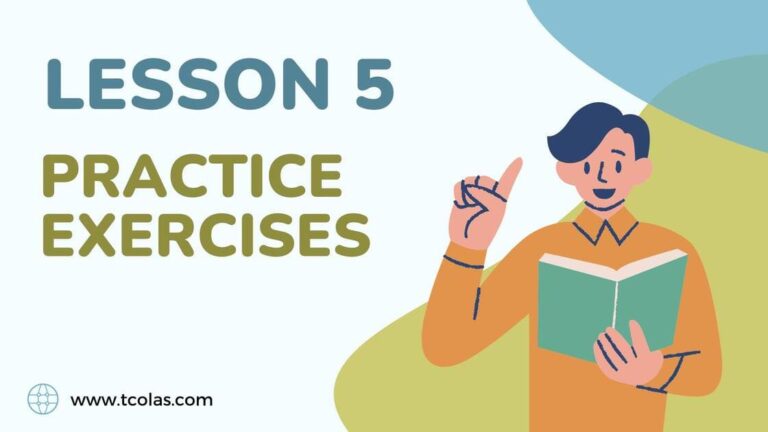Your English fluency matters!
Focusing on your English fluency rather than grammar is an excellent approach to becoming a more confident and effective English speaker. Here are some practical exercises to help you concentrate on fluency:
Table of Contents
ToggleFree Speaking Sessions: Set aside a specific time each day for accessible speaking. Choose a topic or start talking about your day, thoughts, or experiences in English. Don’t worry too much about grammar or correctness; the goal is to keep speaking.
Record Yourself Speaking: Use a voice recorder or a smartphone app to record yourself speaking in English. Listen to your recordings to identify areas where you can improve fluency.
Storytelling: Practice telling stories or anecdotes in English. Focus on keeping the narrative flowing smoothly without getting bogged down in grammar details.
Role-Play Conversations: Engage in role-play scenarios with a language partner or by yourself. The emphasis should be on maintaining a natural conversation flow, even if you make grammatical errors.
Speed Talk: Challenge yourself to speak at a slightly faster pace than usual. This can encourage fluency by forcing you to keep the conversation going without overthinking grammar.
Shadowing: Listen to native English speakers (e.g., podcasts, audiobooks) and try to mimic their speech patterns, rhythm, and intonation. Focus on imitating english fluency rather than obsessing over grammar.
Use Fillers: Incorporate filler phrases like “um,” “uh,” and “you know” to keep the conversation flowing when you need a moment to think or transition to a new topic.

Story Building: Start with a simple sentence and gradually build a story around it, adding details and descriptions as you go. This exercise encourages you to think on your feet.
News Commentary: Watch or read the news in English and provide your commentary or opinion on the stories. The goal is to speak naturally and continuously, even if you need all the facts.
Describe Pictures: Find pictures or images online or in magazines. Describe what you see in the pictures, including details, actions, and emotions, without worrying too much about grammar correctness.
Dictation Practice: Listen to short recordings or passages in English and try to write down what you hear. Focus on capturing the essence of the spoken words rather than getting every grammar rule right.
Speak with Native Speakers: Engage in conversations with native English speakers or language partners. Native speakers can often overlook minor grammar mistakes if their communication is clear and fluent.
Group Discussions: Participate in group discussions or debates. The more you practice expressing your thoughts and ideas spontaneously, the more fluent you’ll become.
Use Simplified Language: Simplify your sentences when needed. Using more straightforward language can help you maintain fluency without getting stuck on complex grammatical structures.
Listen and Respond: Listen to a recording or a speaker, pause it, and then respond to what you heard. This exercise helps you focus on listening comprehension and speaking fluency.
Remember that fluency doesn’t mean ignoring grammar entirely, but it does mean prioritizing effective communication over perfection. Over time, as you practice these exercises, your fluency will improve, and you can gradually fine-tune your grammar skills as needed.
Note!
If you are willing to take a test, then
















